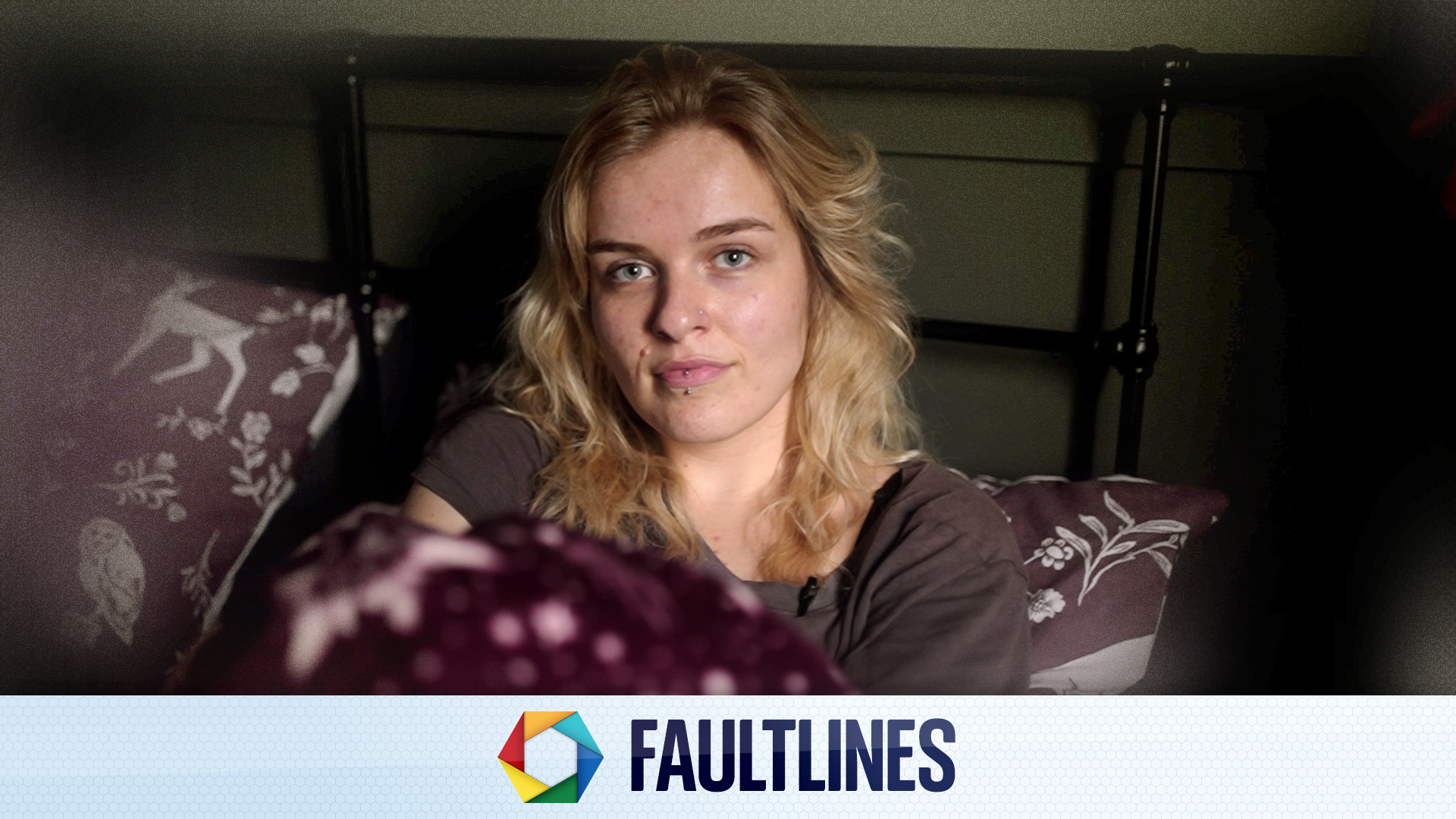Jasmine is in so much pain she can hardly get out of bed.
She’s clutching a hot water bottle and taking morphine, a strong painkiller which she says turns her into a “zombie”.
“It’s like there’s like a ball of acid in the middle of my torso and it’s burning its way through each of my organs. And it feels like that 24/7,” said the 23-year-old.
The pain Jasmine is describing is caused by endometriosis, a debilitating condition where cells similar to the ones lining the womb are found elsewhere in the body.
This can lead to inflammation, pain and the formation of scar tissue.
“It just feels like there’s just searing, stinging, burning pain constantly. And that’s not even the worst of it,” she tells me.
She said symptoms started when she was about 12 years old and have worsened as the years have gone on.
Women in UK face average wait of almost nine years for endometriosis diagnosis
‘Feels like barbed wire’: Endometriosis – the condition with no cure
‘It was like cement had been poured into my pelvis’: The search for a cure for endometriosis
For years she has had appointments, consultations and surgery on the NHS. But her experiences have left more than physical scars.
“I’ve been made to feel like I’m taking up their time. I’ve been made to feel like I’m not important and that my issues should just be medicated and that’s it.”
Read more: The search for a cure for endometriosis
Jasmine waited a year and seven months for an operation, but only after surgery was cancelled six times.
“There was never really a good explanation as to why the surgery was cancelled. I’d just get called up by someone and told it wasn’t happening.”
7.5 million waiting for treatment
Jasmine is one of millions of patients waiting months, sometimes years for NHS treatment. And the numbers have soared since the pandemic.
The number of people waiting for treatment on the NHS has doubled to 7.5 million and even though targets state that 92% of patients should begin treatment within 18 weeks, that target has not been met for nearly a decade.
Which is why the NHS will be one of the big issues for voters in the general election.
Labour said it will cut NHS waiting times with 40,000 more evening and weekend appointments each week, paid for by cracking down on tax avoidance and non-doms.
Meanwhile, the Conservatives and Lib Dems have also promised to cut waiting lists by pouring an extra £1bn into the NHS.
Tackling waiting lists is also the public’s top priority – the highest number of those polled, 39%, say reducing them is the thing they most want the next government to deliver for the NHS, followed by 26% saying making it easier to get a GP appointment.
Twenty-five per cent who responded said the NHS is completely broken, with 61% saying it’s in a poor state and parts of it are broken. Only 1% of people said the NHS is healthy and has very few problems.
Thirty-two per cent of people said they most trusted Labour to reduce waiting times, with just 9% saying they trust the Conservatives most to do it.
Most tellingly, just over a quarter of those who responded, 26%, said no party can be trusted to solve the problems with the NHS.
‘Life seems quite bleak now’
It currently takes an average of eight years and 10 months to get a diagnosis of endometriosis, according to the charity Endometriosis UK.
Since the start of the COVID-19 pandemic, gynaecology waiting lists have increased by over 60%, the biggest increase in any specialism. In England alone, there are nearly 600,000 people on gynaecology waiting lists.
An NHS spokesperson said: “The NHS takes endometriosis very seriously and it is essential that staff support women experiencing cyclical pain as well as the psychological effects associated with their symptoms.
“The health service is committed to meeting women’s individual healthcare needs and is rolling out dedicated pelvic health clinics – bringing together specialist healthcare staff – to provide further support for women living with endometriosis, as well as supporting all local areas to develop a women’s health hub, to help deliver better menstrual health services and improve women’s health outcomes.”
Jasmine is still waiting for her operation to ease her symptoms of endometriosis.
“It has taken a massive physical toll. But I suppose mentally maybe worse. Life seems quite bleak now. I used to have a lot of dreams wanting to travel the world. But I don’t have the energy for that anymore.”
Read more on Sky News:
Bodies decomposing in hospitals, report finds
E.coli cases ‘likely to rise’ after outbreak
She says she hopes whoever wins the general election focuses more on the NHS.
“I’d like to believe that there was some sort of superhero to swoop in and save the NHS but I don’t feel in this current climate that that’s even remotely possible.
“I think the current government have run the NHS into the ground, but I don’t have much faith in any of the other parties to do much better.”
Anyone feeling emotionally distressed or suicidal can call Samaritans for help on 116 123 or email [email protected] in the UK. In the US, call the Samaritans branch in your area or 1 (800) 273-TALK.




